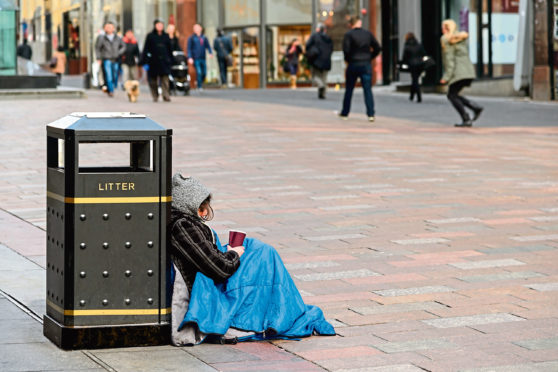Seventy thousand civilians died in Britain in the Second World War, as the VE Day celebrations reminded us.
As the nation dreams of VV Day (Victory against Virus) it looks as if the civilian death toll will be roughly the same.
War prompted grand dreams of something better.
Covid-19 has prompted its own strand of positive thinking.
The big idea is everywhere, as people imagine a better world.
The Office for National Statistics says average life expectancy in the UK was in the high 60s in 1950.
By 2010 that had risen by almost 20 years to the mid 80s. Hurray for the big idea, the welfare state, allowing us to live better and longer.
Longevity is no longer the top goal of policy.
For all but a few narcissists, death in your ninth decade seems about right, given the increased likelihood of disease, dementia or disability.
Yet we still use death as the metric of policy: cancer kills X, drunk driving Y, drug abuse, heart disease and so on.
They are all described in terms of shortening life. Just as Covid-19 is now. Things which end life sooner than a statistical average are bad.
Yet the deaths from the virus, though all tragic, are small compared to other killers, chief among which is poverty.
Average longevity may have leapt forward, but the devil is in the detail.
Scotland’s poor are likely to die 10 years sooner than her better-off, or a decade before folks in southern England.
Yet when politicians float big ideas about a post-virus world, nobody bothers to say “let’s end poverty”.
Instead we get schemes for universal basic income (UBI) or national care services.
The truth is we no longer bother to fix our biggest problem. Worse, we think of politics as being about new ideas and huge bureaucracies, not actual change.
UBI may help in an era of less employment.
Providing an income to all, it could ensure that everyone enjoys a basic quality of life.
Or not. The problem with UBI is that there are many different versions. It is banal to say you like UBI with no reference to detail, like those old Miss World contestants who’d say they want world peace – nice, but vapid.
The Scottish Government has been posturing on UBI for ages, but the working group has yet to offer any detail.
Three years after the issue left the FM’s lips, we are no clearer what she means.
As for a national care service, suddenly so vogue, nobody can tell you what this practically means, or even the problem it is trying to fix.
The inference is that people would not have died of Covid-19 in care homes if this service existed.
Yet the high fatality in homes seems to have more to do with the government instruction to move patients from hospitals, than any structural problem.
Both UBI and a national care service are lollipop policies – politicians hand them out to keep our mouths busy, knowing there’ll be nothing left once we’ve sucked on them long enough.
In contrast, poverty is a bit dull.
It’s always there, nothing we do seems to shift it and Scotland’s appalling record has become a national joke.
We all die, but Scots do it first.
The tragedy of Covid-19 is that it has become its own “big idea”.
It consumes not just political and government time, but is the obsession of our public sector.
All policies have become secondary to the virus one. All targets shot through by Covid.
This is not surprising. Our leaders instinctively react to the big issue and government follows.
Anything else would be criticised by rival parties and the general public.
But in the rush to do the right thing, we risk doing something much worse: ruin the chances of a generation.
Our infants, school children and graduates are being denied their youth. As we tear up exams, social habits, school opening and so much more in the name of Covid, we signal that the young must suffer.
With the virus mainly affecting the elderly, this can seem like another inter-generational betrayal, alongside climate change and financial debt.
For the young from poor households, this is particularly devastating. No social structures to help, no comfort from society.
The deaths we shall have to count for years to come will be those from poverty.
The Scottish Government has delayed indefinitely publication of a scheduled report on child poverty.
It says everyone is too busy fighting the virus to write the report.
Pause a moment to consider the meaning of that. The Child Poverty Act of 2017 is just another big idea which has lost its appeal.
That one in four Scots children are poor is no longer a priority.
When the face masks are forgotten, poverty will still be Scotland’s shame. Seventy thousand UK civilians died in the war, nearly 400,000 died in battle.
Those proportions seem about right when comparing the virus to our endemic social failings.
Our big fight is with poverty, not Covid-19.

